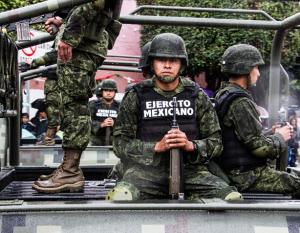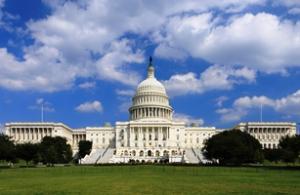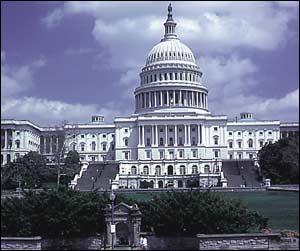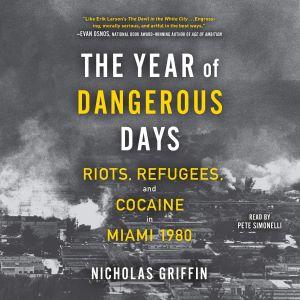Miami, 1980. What a year.
New York City's finest are at it again, and there's more trouble in the Houston narcotics division.
The initial draft of the Democratic platform calls for not interfering with state marijuana laws but doesn't call for legalization, a North Dakota legalization campaign comes up short, hospitals are warning of IV opioid shortages, and more.
Congress could take up an amendment that aims at protecting state-legal marijuana programs next week, Oakland activists are pushing forward with plans to open up natural psychedelics for healing -- but not commercial -- purposes, and more.
The House could vote to legalize marijuana this fall, DC activists say their natural entheogen initiative has qualifed for the ballot but it's not official yet, and more.
A new poll suggests the New Jersey marijuana legalization initiative is headed for victory in November, drug reform pioneer Arnold Trebach had died, and more.
An amendment to block the Justice Department from using its funds to go after state-legal marijuana programs is headed for a House vote, Maryland's Supreme Court rules that the smell of weed isn't enough for a police search and arrest, and more.
The House has voted to block the Justice Department from interfering with state-legal marijuana programs, a populous Maryland county moves to end no-knock raids for drugs, and more.
Rhode Island's governor is once again pushing for marijuana legalization, the South Dakota state medical association comes out against both medical marijuana and marijuana legalization initiatives, and more.
Peru and the US are in a dispute over how much coca and cocaine is produced there, Houston narcs involved in a deadly botched drug raid get indicted, and more.
The Year of Dangerous Days: Riots, Refugees, and Cocaine in Miami 1980 by Nicholas Griffin (2020, Simon & Schuster, 318 pp., $26.99 HB)
In this, of all years, that a book like
The Year of Dangerous Days should make an appearance seems apropos. As we live our own year of dangerous days, with pandemic, economic disruption, and streets simmering over police violence, especially aimed at Blacks, this is a tale of Florida's glittering jewel living through a similar three-pronged existential crisis.
It is both fast-paced thriller and thoughtful meditation on race, class, immigration, crime, and the role of cocaine in violence and corruption. We're still grappling with all those issues that beset Miami 40 years ago, a sad truth that doesn't reflect too favorably, but perhaps leaves some room for lessons to be learned.
In Dangerous Days, Miami resident and veteran author Nicholas Griffin takes us to 1970s Miami, or rather, the three Miamis: Anglo, Black, and Hispanic. With the city becoming increasingly Spanish-speaking thanks to the influx of Cuban refugees after Fidel Castro's revolution came to power in 1959, Whites were grumbling about speaking English in America, damn it! -- while Blacks were feeling displaced, left behind, and tired of heavy-handed policing and the Cubans were mainly flexing their growing political power as right-wing anti-communist extremists devoted to restoring their ancien regime 90 miles across the Caribbean in Havana.
The up-and-coming Sunbelt city was presided over by a charismatic, visionary Puerto Rican mayor, Maurice Ferre -- the city's first Latino mayor -- whose family construction business fueled its fortune by supplying the concrete that helped build the I-95 freeway through the heart of Overtown, the city's Black commercial and social soul back in 1965. That act of "urban renewal" drove thousands of displaced black residents into Liberty City, the nation's first public housing project, where tensions festered throughout the 1970s.
Ferre's vision for Miami was as a southward-facing city keyed to the economies of Latin America -- and it worked. Foreign banks piled into the city, Latin American tourism and home-buying boomed, and Miami soon earned the sobriquet "the capital of Latin America" as flight capital from Central and South American countries. But capital flight alone couldn't account for the massive, multi-billion dollar surpluses showing up in the Miami Federal Reserve bank at the time. That money was cocaine cash.
The laundered cash from cocaine sales took place quietly and largely unnoticed -- at least at first -- but the violence unleashed by Colombian drug traffickers in Miami was another story. The July 1979 Dadeland Mall Massacre put those gunmen on the map, and repeated brazen broad daylight killings by Colombian hitmen finally got the attention of Miami police, although they remained bewildered by just who they were dealing with. (And the homicide unit in particular remained hampered by the fact that a third of its detectives went down in a cocaine corruption bust engineered by the FBI.)
Griffin follows an eventual joint federal-local investigation into cocaine money-laundering, Operation Greenback, as its operatives watch a key Colombian money-launderer literally carrying duffle bags full of cash to a series of all-too-welcoming banks on a daily basis. And he follows the efforts of Miami police and prosecutor Janet Reno to actually arrest and convict their first Colombian hitman. Here's where the book most resembles a police procedural.
From a drug policy perspective, Griffin is not great. For him, that cocaine is illegal is unquestioned, and the role of its illegality in generating both violence and black-market profits in the billions goes largely unmentioned. He does mention that if cocaine were legal, that money launderer would just be considered a hard-working professional, but he leaves it at that.
At least Mayor Ferre acknowledged the role of cocaine capital in helping build the city: He called the illicit drug trade "a depravity of the human soul," but then went on to say that "from the economic point of view, once the money goes to the bank and gets deposited, and is loaned out to build more condominiums, well, money is money."
Miami's 1980 cocaine crisis was, of course, only part of the city's struggle that year. After Dade County police beat Black motorcyclist Art McDuffy to death in late 1979, the city's Black community seethed with anger, and when an all-White jury in Tampa cleared the killer cops of any criminal liability, Liberty City exploded in some of the worst race riots of the past half-century. Over three days in May, the destruction left 10 Blacks and eight Whites dead and at least $80 million in property damage before the flames died down. Griffin details the trajectory of this disaster in fine form.
At the same time, tensions over immigration exploded when Fidel Castro responded to pressure (from within and without) to let disaffected Cubans leave the island by opening the doors to a flotilla of boats piloted by Miami Cubans gone to rescue their family members. This resulted in the Mariel boatlift, in which more than 100,000 Cubans were ferried to Miami. But Castro had the last laugh, using the boatlift to dump thousands of prisoners, mental patients, and other "anti-social elements" on Florida.
Between the cocaine cowboys, the racial tensions that exploded in Liberty City, and the radical demographic shift heralded by the Marielitos, 1980 was indeed a watershed year for Miami. Nicholas Griffin turns the tangled tales of triple trouble into an eminently readable and illuminating tale, even if he doesn't provide us with a scathing critique of the results of cocaine prohibition.
back to top
New York City's finest are at it again, and there's more trouble in the Houston narcotics division. Let's get to it:
In New York City,
an NYPD officer was arrested last Wednesday on charges he was part of a Long Island drug ring. Officer Joseph Recca went down as authorities in Suffolk County investigated a fatal overdose last September. The investigation determined that he had sold drugs to the victim, although it's not clear if he sold the drugs that caused the overdose. Recca and two others face drug and conspiracy charges, which could be upgraded to manslaughter if he is linked to the drugs that caused the overdose. He is now a former NYPD officer, having resigned upon his arrest. He's looking at up to 25 years in prison -- and that's without the manslaughter charge.
In Houston, a Houston police narcotics officer was relieved of duty and placed under investigation on July 16. Officer Juan Martinez, a 15-year veteran, is being investigated for "inappropriate conduct related to undercover operations and confidential informants," but officials have not yet provided additional details. Martinez works in the same division that undertook a botched drug raid that led to the death of two innocent homeowners and the wounding of four police officers.
back to top
The initial draft of the Democratic platform calls for not interfering with state marijuana laws but doesn't call for legalization, a North Dakota legalization campaign comes up short, hospitals are warning of IV opioid shortages, and more.

The Mexican military is being cited (again) for human rights abuses in its prosecution of the drug war. (Creative Commons)
Democratic Draft Platform Does Not Include Marijuana Legalization. The initial version of the national Democratic Party platform, released by the Democratic National Committee's platform drafting panel, calls for allowing states to set their own marijuana laws, but stops short of calling for federal legalization. Various marijuana policy reforms in the draft include decriminalizing cannabis possession, automatic expungement of prior marijuana convictions, federal rescheduling through executive action, legalizing medical cannabis, and allowing states to set their own laws. The draft could still be amended when the full platform committee meets next Monday.
Coalition of Justice and Drug Reform Groups Call on Congress to Legalize Marijuana Amid Coronavirus Crisis. The ACLU, the Drug Policy Alliance, NORML, and Human Rights Watch are among a coalition of civil rights and drug reform groups calling on Congress to pass comprehensive marijuana legalization legislation that emphasizes restorative justice. Calling themselves the Marijuana Justice Coalition, the group says legalization is now especially urgent in the context of the coronavirus pandemic and nationwide protests over police brutality. Given the current situation, "marijuana reform as a modest first step at chipping away at the war on drugs is more relevant and more pressing than ever before," they wrote in a letter to Congress.
North Dakota Legalization Initiative Comes Up Short on Signatures. The campaign to put a marijuana legalization initiative on the November ballot has come up short on signatures. The North Dakota Freedom of Cannabis Act needed some 27,000 valid voter signatures by Wednesday, but had only 24,000 raw signatures to hand in. A second legalization initiative campaign, Legalize ND, came up short earlier. Now, both groups say they are aiming at 2022.
Heroin and Prescription Opioids
Hospitals Say IV Opioid Painkillers Running Short Amid Coronavirus Crisis Because of DEA Quota Policy. One of the biggest hospital groups in the country, Premier, Inc., is warning that intravenous painkillers are in short supply during the pandemic because of the DEA's restrictions on legal opioid production. As part of the federal government's response to the opioid epidemic, DEA has slashed the amount of opioids producers can manufacture over the past two years. That's made them harder to get for everyone, including hospitals. Unless the agency gives hospitals more access to IV painkillers, hospitals will keep running short of the medications needed to help ventilate coronavirus patients and sedate patients before surgery, Premier Inc. wrote in a Wednesday letter to the DEA.
Law Enforcement
DEA Participating in Federal Law Enforcement Surge Aimed at Big Cities. As part of the Trump administration's surge of federal law enforcement in cities including Albuquerque, Chicago, and Kansas City, the DEA will participate in what the feds are calling Operation Legend. "The surge of violent crime in many of our great American cities is unacceptable and cannot be left unchecked," said DEA Acting Administrator Timothy J. Shea. "DEA plays a vital role in combatting violent crime by targeting drug trafficking organizations who employ violence and intimidation to further their criminal enterprise. Violence is an essential element of drug trafficking. Our agents, working alongside our state, local, and federal counterparts, will bring additional resources and specialized investigative skills to help reduce violent crime plaguing so many communities." Shea did not address the role of drug prohibition in encouraging violence.
International
Mexican Human Rights Commission Says Military Abducted 27 People at Border in 2018, 12 Later Found Dead. The Mexican government's human rights commission said Tuesday that Mexican marines abducted 27 people in the border town of Nuevo Laredo in 2018 and that 12 of them were later found dead. The other 15 haven't been seen. The commission more broadly accused the marines of engaging in "illegal searches and arbitrary detentions." At the time, the military was engaged in running battles with the Zetas cartel. The commission issued non-binding recommendations that criminal investigations be opened and changes be made in Navy patrol procedures.
Mexican Border City Sees 26 Killings in 72 Hours. Chihuahua Attorney General Cesar Augusto Peniche said Wednesday that Ciudad Juarez had seen 26 homicides in the past 72 hours and that they can be attributed to a rapidly escalating war between rival gangs fighting for control of the city's drug franchise. The groups at war are the Aztecas and the La Empresa cartel. The latest killings bring the death toll to 969 so far this year in the city.
The Drug Policy Alliance is a funder of StoptheDrugWar.org.
back to top
Congress could take up an amendment that aims at protecting state-legal marijuana programs next week, Oakland activists are pushing forward with plans to open up natural psychedelics for healing -- but not commercial -- purposes, and more.

Decriminalize Nature Twitter logo
Congress Could Vote on Amendment Protecting Legal Marijuana States Next Week. Lawmakers in the House filed an amendment Wednesday to protect state-level marijuana legalization laws from federal interference. The amendment is to an appropriations bill funding several federal departments. It was filed by Reps. Earl Blumenauer (D-OR), Tom McClintock (R-CA), Eleanor Holmes Norton (D-DC) and Barbara Lee (D-CA) and could come to a vote next week -- if the House Rules Committee decides to take it up.
Medical Marijuana
New York Senate Passes Bill Protecting Medical Marijuana Patients from Eviction. The state Senate approved a bill on Tuesday that would grant housing protections for registered medical marijuana patients. The measure, S.4117, "prohibits the eviction of tenants for using medical marijuana for a certified medical use," according to a summary of the bill. The bill has now been referred to the Assembly, where the Housing Committee will take it up as A.7764.
Psychedelics
Oakland Psychedelic Activists Unveil Plan to Let Residents Use Natural Entheogens. Activists with Decriminalize Nature have submitted a proposed measure to allow for the use of a variety of psychedelic substances in medicinal hearing ceremonies. The proposal builds on an existing ordinance to make enforcement of laws against psychoactive plants the lowest law enforcement priority. The measure would not allow sales, but would instead establish a pilot program providing legal protection for residents and facilitators participating in plant-based healing ceremonies.
back to top
The House could vote to legalize marijuana this fall, DC activists say their natural entheogen initiative has qualifed for the ballot but it's not official yet, and more.

Could the House vote to legalize marijuana this fall? Maybe. (Creative Commons)
Congress Planning Vote on Federal Marijuana Legalization Bill in September, Sources Say. Congressional sources have told Marijuana Moment that the House is moving toward holding a floor vote on a comprehensive federal marijuana legalization bill in September. The bill in question is the Marijuana Opportunity, Reinvestment and Expungement (MORE) Act (HR 3884).
New York Senate Approves Bill to Widen Marijuana Expungements. The state Senate has approved SB 8666, which increased the number of people eligible for the expungement of low-level marijuana convictions. "This bill would ensure that individuals convicted for certain lower-level marijuana possession offenses prior to 1977 are eligible for relief in accordance with the expungement provisions enacted in 2019," the bill states.
Psychedelics
DC Activists Say They've Qualified Natural Entheogens Initiative for Ballot, But Not Official Yet. Activists with Decriminalize Nature DC, the folks behind an initiative to make natural psychedelics the lowest law enforcement priority, say that they've collected enough valid voter signatures to qualify for the November ballot. They have been watching the validation process since turning in signatures earlier this month and say they crossed the signature threshold late last week. The DC Board of Elections will make a formal announcement at its August 5 meeting.
International
France to Start Hitting Drug Users with Instant 200 Euro Fines. Prime Minister Jean Castex said Saturday that police in some cities have been issuing 200 Euro ($233) fines to people caught using drugs, especially marijuana, and that the program is going to be expanded nationwide. Under a law passed in 1970, drug users can be punished with up to a year in prison, but few people actually do jail time. The new measures would simplify policing by "inflicting punishsment without delay," Castex said, adding that it would be an efficient tool against drug dealers "which are eating away at neighborhoods."
back to top
A new poll suggests the New Jersey marijuana legalization initiative is headed for victory in November, drug reform pioneer Arnold Trebach had died, and more.

Drug reform pioneer Arnold Trebach. RIP. (YouTube)
Democratic Party Delegates Reject Marijuana Legalization Amendment to 2020 Party Platform. The Democratic National Committee platform committee on Monday rejected an amendment calling for marijuana legalization. The vote was 106-50. Instead the committee chose to stick with marijuana law reform language adopted in a draft platform last week. That language calls for decriminalizing marijuana possession, expungement of prior convictions, federal rescheduling through executive action, legalizing medical cannabis and allowing states to set their own laws.
New Jersey Poll Has Strong Support for Marijuana Legalization. A new poll conducted by DKC Analytics found 68% support for marijuana legalization via the ballot box in November. That's up from the 61% support the notion had in a Monmouth University poll in April. The ballot question will ask voters in November if they think the state should legalize marijuana and apply the state sales tax to purchases.
Drug Policy
Drug Policy Reform Giant Arnold Trebach Dead at 92. The American drug reform movement has lost one of its pioneers. Arnold Trebach, who died last week at the age of 92, founded the Drug Policy Foundation in 1986, deep in the middle of Ronald Reagan's war on drugs. That foundation has since morphed into the Drug Policy Alliance, the most powerful drug reform organization in the country. As a professor at American University, Trebach took what was then a lonely and courageous stance against drug prohibition and the excesses of drug war and helped launch it toward the mainstream. His 1987 book, The Great Drug War, was a forthright broadside against prohibitionist orthodoxy that laid out the adverse consequences of trying to control the way people chose to alter their consciousness, from mass incarceration to widespread drug testing and humiliating border searches to coercive "drug treatment" centers and beyond. Although he didn't outright call for an end to drug prohibition until the second edition of his book in 2005, his pioneering work laid the intellectual groundwork of the anti-prohibitionist movements that have made such progress in this century. Arnold Trebach was not only a giant of drug reform; he was a friend to us at StoptheDrugWar.org. He will be missed.
back to top
An amendment to block the Justice Department from using its funds to go after state-legal marijuana programs is headed for a House vote, Maryland's Supreme Court rules that the smell of weed isn't enough for a police search and arrest, and more.

Maryland Supreme Court rules smell of weed not sufficient for arrest or search. (Creative Commons)
House Will Vote on Protecting All State Marijuana Programs This Week. The House is prepared to vote this week on an amendment from Reps. Earl Blumenauer (D-OR), Tom McClintock (R-CA), Eleanor Holmes Norton (D-DC) and Barbara Lee (D-CA) that would protect both medical and recreational marijuana programs in the states, territories, and tribal lands. The amendment would bar the Justice Department from using its funds to impede the implementation of state-legal marijuana programs.
Maryland Supreme Court Rules Smell of Marijuana Alone Not Sufficient for Police Search and Arrest. The state's high court has ruled that police may not search or arrest people based on the smell of marijuana alone. "The odor of marijuana, without more, does not provide law enforcement officers with the requisite probable cause to arrest and perform a warrantless search of that person incident to the arrest," the court held in a unanimous ruling. The decision builds on an earlier ruling by the same court that police can't arrest and search someone based on observing amounts of marijuana smaller than 10 grams.
International
Bolivia Coca Cultivation Up Last Year, UNODC Says. Coca cultivation was up 10% over 2018 last year, according to the latest Coca Cultivation Monitoring Report from the UN Office on Drugs and Crime (UNODC). The Yungas region of La Paz accounted for nearly two-thirds of cultivation, while the Tropics of Cochabamba accounted for nearly all the rest. Meanwhile, the Bolivian government reported a roughly 20% decrease in eradication.
British Columbia Bill to Require Youth Overdose Victims to Be Detained Put on Hold. Canada's British Columbia has paused movement on a bill that would allow for people under age 19 to be detained after they suffer a drug overdose. The proposed changes in the provincial Mental Health Act would allow teens to be detained in a hospital for up to a week after an overdose, but the bill has been paused in the face of opposition from children and youth advocates and drug reform activists. They say it should be withdrawn completely.
back to top
The House has voted to block the Justice Department from interfering with state-legal marijuana programs, a populous Maryland county moves to end no-knock raids for drugs, and more.

uscapitol2_6.jpg
House Passes Measure to Protect State Marijuana Laws from Federal Interference. The House on Thursday took up an amendment to protect all state, territorial, and tribal marijuana programs from interference by the Justice Department. The amendment passed on a voice vote.
Law Enforcement
Maryland's Montgomery County Bans No-Knock Raids for Drugs, Restricts Use of Force. The Montgomery County Council approved changes to the county police department's use of force policy on a unanimous vote Wednesday. No-knock raids would be banned except when involving crimes of violence, and chokeholds and other restraints would also be banned. "When there is state-sanctioned violence and discrimination, people feel it and that's why we've awoken right now," Councilman Will Jawando, one of the lead sponsors of the bill, told the council Wednesday. "Drug possession or distribution would not be allowed under this bill," Jawando said. "The vast majority of cases for no-knock warrants in the county are for drug possession." Actually, only about 40% of no-knock raids in 2017 and 2018 were for drug offenses, but this measure would eliminate those. County Executive Marc Elrich, who voiced support for police reforms earlier this summer, is expected to sign the bill.
International
New Zealand Roadside Drug Testing Bill Proposed. Police Minister Stuart Nash is pushing a proposed new law that would give police the power to conduct random, suspicionless roadside drug testing of drivers. Under the new bill, police will be able to saliva-test drivers for commonly used drugs such as marijuana, methamphetamine, cocaine, ecstasy, opiates and benzodiazepines. "Under this law, drivers who test positive for the presence of drugs will be fined, immediately suspended from driving for 12 hours, and lose half their demerit points," Nash said. "Drivers would also face harsher criminal penalties where blood tests confirm impairing levels of drugs in their system, or drugs combined with alcohol." Specific criminal limits for different drugs would be set later, giving an expert review panel time to weigh in. The bill is set for a first reading next week.
Scots Back Safe Injection Sites, Poll Finds. A majority of people in Scotland support setting up safe injection sites, according to a poll published in the International Journal of Drug Policy. The study, conducted by academics in Glasgow and Liverpool, questioned more than 1,500 people in Scotland and found 61% agreed with introducing the facilities, while 15% were against and 24% unsure. The poll comes as proposals to set up a safe injection site in Glasgow have been blocked by the British Home Office in London.
back to top
Rhode Island's governor is once again pushing for marijuana legalization, the South Dakota state medical association comes out against both medical marijuana and marijuana legalization initiatives, and more.

Fewer opium poppies in Mexico these days... but more fentanyl. (UNODC)
Rhode Island Governor Reiterates Support for Marijuana Legalization. Gov. Gina Raimondo (D) said in an interview Thursday that she continues to support marijuana legalization as one way to raise revenue. "I was in favor of it last year, so I'm continuing to be in favor of it," the governor said. "I'm going to put it back again."
South Dakota Medical Association Comes Out Against Marijuana Initiatives. Voters will have a chance in November to vote on both a marijuana legalization initiative, Constitutional Amendment A, and a medical marijuana initiative, Initiated Measure 26, but the South Dakota State Medical Association is opposing both of them and will write the opposition statement that will appear on the general election ballot. The association maintains that marijuana is a hazardous drug and a public health concern.
Drug Policy
White House Office of National Drug Control Policy (ONDCP) Announces Record Reduction in Poppy Cultivation and Potential Heroin Production in Mexico. "The annual United States Government estimate of "Mexican Poppy Cultivation and Heroin Production" found poppy cultivation in Mexico decreased by 27 percent, from 41,800 hectares in 2018 to 30,400 hectares in 2019," ONDCP said. "Similarly, potential pure heroin production decreased by 27 percent, from 106 metric tons in 2018 to 78 metric tons in 2019. This 27 percent decrease in the potential production of heroin marks a milestone by meeting a goal set by the Trump Administration's National Drug Control Strategy two years early." What ONDCP didn't say is that Mexican poppy cultivation is down not because of any US or Mexican policy initiatives but because the farmgate price for opium dropped dramatically beginning last year because of overproduction and the increasing resort to fentanyl as a substitute for heroin.
back to top
Peru and the US are in a dispute over how much coca and cocaine is produced there, Houston narcs involved in a deadly botched drug raid get indicted, and more.

How much coca and cocaine is Peru producing?
New Senate Bill Would Legalize Marijuana Like Tobacco. Sen. Tina Smith (D-MN) has filed the Substance Regulation and Safety Act (S.4386), which would deschedule marijuana and require the Department of Health and Human Services to develop regulations that treat marijuana like tobacco. The bill would also create a national research institute to study the risks and benefits of marijuana, require the Department of Agriculture to set quality control standards and require the Department of Transportation to study methods for detecting THC-impaired driving.
Medical Marijuana
Louisiana Law Allowing Medical Marijuana for Any Debilitating Condition Now in Effect. A new law that broadly expands access to medical marijuana has now gone into effect. The new law allows doctors to recommend medical marijuana to patients for any debilitating condition. Under the state's old law, only a limited list of specified illnesses and conditions were eligible for medical marijuana.
Law Enforcement
Houston Ex-Cops in Deadly Botched Drug Raid Indicted. A Harris County grand jury has indicted six former Houston narcotics officers after their unit came under scrutiny in the wake of a 2019 raid in which an innocent pair of homeowners were killed. Prosecutors charge that the former officers falsified documentation about drug payments to confidential informants, routinely used false information to get search warrants, and lied in police reports. A total of 17 felony charges were brought against the officers, led by Gerald Goines.
International
ONDCP Releases Data on Coca Cultivation and Production in Peru. The White House Office of National Drug Control Policy (ONDCP) released the results of the annual United States Government estimates measuring coca cultivation and potential cocaine production for the Republic of Peru: "Coca (the plant used to make cocaine) cultivation in Peru significantly increased to 72,000 hectares in 2019, with potential pure cocaine production of 705 metric tons… "Coca cultivation in Peru and across the Andean Region of South America remains a significant threat to the American people. That's why President Trump ordered a surge in counternarcotics operations to take the fight directly to the drug cartels. This surge has already resulted in preventing 183,521 pounds of cocaine from entering the United States, resulting in $2.1 billion in lost revenue for drug cartels. As part of its partnership with the United States, Peru must expand its efforts to curb coca cultivation and production. The Trump Administration remains committed to bringing those who profit from drug trafficking to justice with the singular goal of saving American lives," ONDCP Director Jim Carroll said.
Peru Rejects US Estimates on Increased Cocaine and Coca Leaf Production. The Peruvian government on Saturday rejected an ONDCP report that said coca leaf and cocaine production had dramatically increased last year. The anti-drug office, Devida, said the report contained "a series of errors" because it did not consider the amount of coca eradicated nor the traditional consumption of coca and the country's licit coca industry, which does not produce cocaine.
back to top








